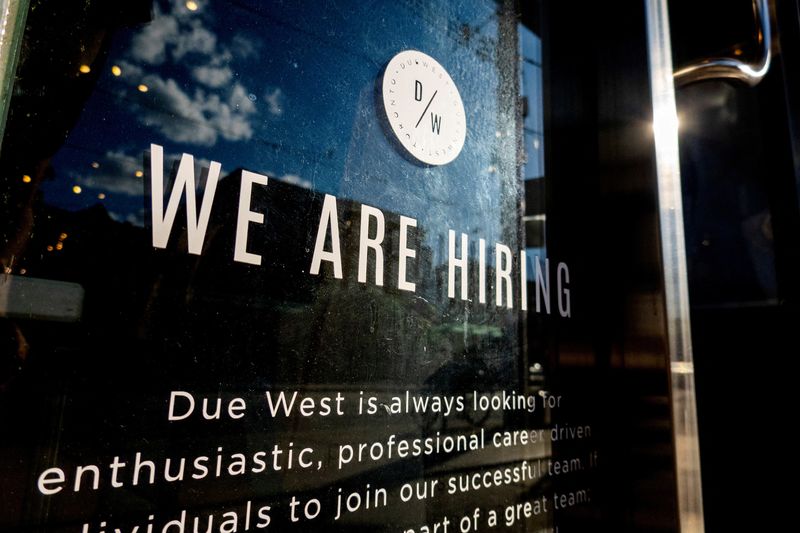Canada lifts work hour limits for international students to help labour shortage
2022.10.07 11:35
[ad_1]

© Reuters. FILE PHOTO: A help wanted sign at a store along Queen Street West in Toronto Ontario, Canada June 10, 2022. REUTERS/Carlos Osorio/File Photo
By Anna Mehler Paperny
TORONTO (Reuters) – Canada is lifting the 20-hour-a-week limit on the number of hours international students can work off-campus, Immigration, Refugees and Citizenship Minister Sean Fraser announced on Friday, citing the country’s labour shortage.
Canada’s job vacancy rate was 5.4% in July, down from a peak 6.0% in April 2022. Canadian employers were actively looking to fill nearly 1 million jobs as of July.
“There’s more job opportunities than there are workers in almost every community in Canada,” Fraser told reporters, adding that while some international students will work in service jobs, he hopes some will find employment in their field of study.
The new policy, set to run from Nov. 15 through the end of 2023, will only apply to students studying full time, he said.
Students have said the 20-hour cap made them vulnerable to exploitation because many end up working longer hours without protections.
Fraser said lifting the cap will give students a greater choice of employment opportunities, making them less likely to fall victim to “unscrupulous employers.”
“That will actually create a better opportunity for students to not fall victim to an individual employer they may be beholden to.”
Fraser also announced a pilot project to automate some approvals of study permit extension applications, meant to address a backlog.
Canada has become increasingly dependent on temporary residents, including international students, to fill its labour force needs. Advocates and economists say this creates a precarious workforce and can depress wage and working conditions for all employees.
The growth in temporary residents has been especially steep for students coming from abroad to study. Canada has become an increasingly sought-after destination for international students who often come with the intent of eventually obtaining permanent residency.
Fraser said he is working on improving pathways to permanency for international students as well as to undocumented people but would not give details.
[ad_2]
Source link








